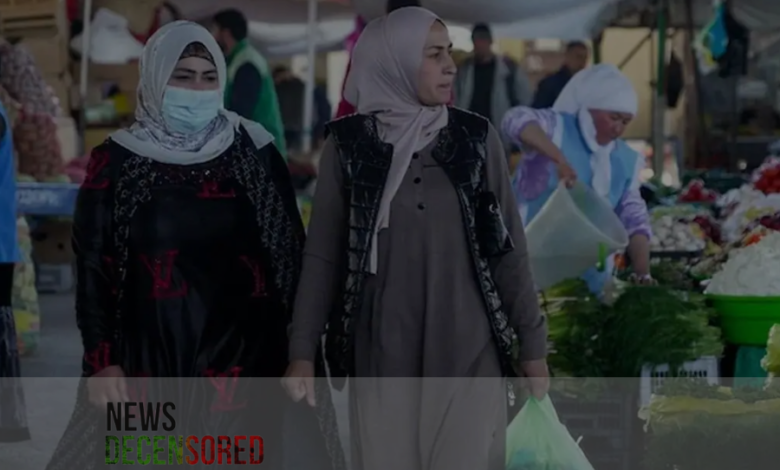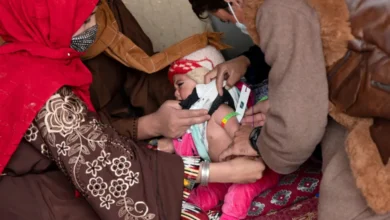Tajikistan, a Muslim-majority country, passes controversial legislation to ban hijabs and reduce Islamic influence

It is strange and unusual to see the fact and its opposite simultaneously, but this is the situation in which the Muslims of Tajikistan have lived since ancient times and until today. When we wake up one morning to the news of the ban on wearing the hijab and celebrating Eid al-Fitr and Eid al-Adha in a Muslim country with a Muslim majority population, then signs of astonishment and wonder begin to appear quickly.
Still, they gradually disappear when the truth behind this decision is revealed. The Tajikistan Parliament issued a law prohibiting women from wearing the “burqa and niqab,” justifying the decision as an attempt to encourage national culture and traditions in the face of imported culture and to combat religious extremism.
Hijab officially banned:
A few days ago, Tajikistan banned the hijab and other “foreign fashions,” as the state describes it, as parliament passed a new law regulating “Islamic dress” and the celebration of Eid al-Fitr and Eid al-Adha. The law was approved by the upper house of parliament, controlled by the party of Tajik President Emomali Rahmon, who has ruled the country since 1992.
The controversial law comes after years of informal restrictions on wearing the hijab in the Muslim-majority country. Under the new law, individuals wearing “the hijab or other prohibited religious clothing” will face hefty fines of up to 7,920 somonis (the Tajik currency) — the equivalent of about $740 — while companies that allow their employees to wear “clothing prohibited by law” will face fines of up to 39,500 Simonis ($3,680). Government employees and religious leaders who violate the law will face even heavier fines of between 54,000 and 57,600 Simonis ($5,030 and $5,370).
The Tajikistan parliament also passed a law banning women from wearing burqas and niqabs. The decision was justified as an attempt to promote national culture and traditions in the face of imported culture and combat religious extremism. The law stipulates that any woman wearing the burqa will be fined 3,500 somoni ($322).
The new law also prohibits children from participating in celebrations and the tradition of exchanging gifts associated with Islamic holidays, as the custom of “Idgardak” will be banned. This custom is associated with Eid al-Fitr and Eid al-Adha and involves children on these two occasions touring the streets and moving from house to house to offer congratulations and receive sweets.
According to the statement, the laws “On the organization of ceremonies and rituals in the Republic of Tajikistan” and “On responsibility for the education and upbringing of a child,” adopted in their new versions, aim to protect the actual values of national culture and prevent superstitions and prejudices.
Weak justifications for power:
The press service of the head of state said that President Rahmon signed 35 laws, including a new version of the laws on the organization of celebrations and rituals, the responsibility of parents for the education and upbringing of children, the ban on children’s celebrations on Islamic holidays, and the wearing of clothing alien to the national culture.
According to the statement, the new versions of the Laws “On the Organization of Celebrations and Rituals in the Republic of Tajikistan” and “On Responsibility for the Education and Upbringing of the Child” are aimed at protecting the actual values of national culture, preventing superstitions and prejudices, excesses and extravagance in holding ceremonies and rituals, raising the spiritual, social and economic level of the people of Tajikistan, protecting the rights and freedoms of the child, and educating and raising children in the spirit of humanity, national pride and respect for national values.
In March 2024, during a meeting with public and religious figures, Rahmon pointed out that national clothing reflects the material and spiritual values of the people’s past and makes it possible to identify the nation through the form and style of clothing, declaring that imitating an alien culture in dress is like wearing foreign clothes. Like the “hijab,” it poses a problem for Tajik society.
Rahmon explained that deviating from the etiquette and rituals of dress is a “cultural alienation that undermines the independence of thought and the national and cultural identity of the nation,” justifying his claims that Tajik national clothing has received international recognition, including from the UNESCO World Heritage Organization.
The British newspaper The Independent reported that in early 2016, the police in the Republic of Tajikistan shaved the beards of 13,000 men on its territory as a step to confront “extremism” and forced more than a thousand women to remove their hijabs.




